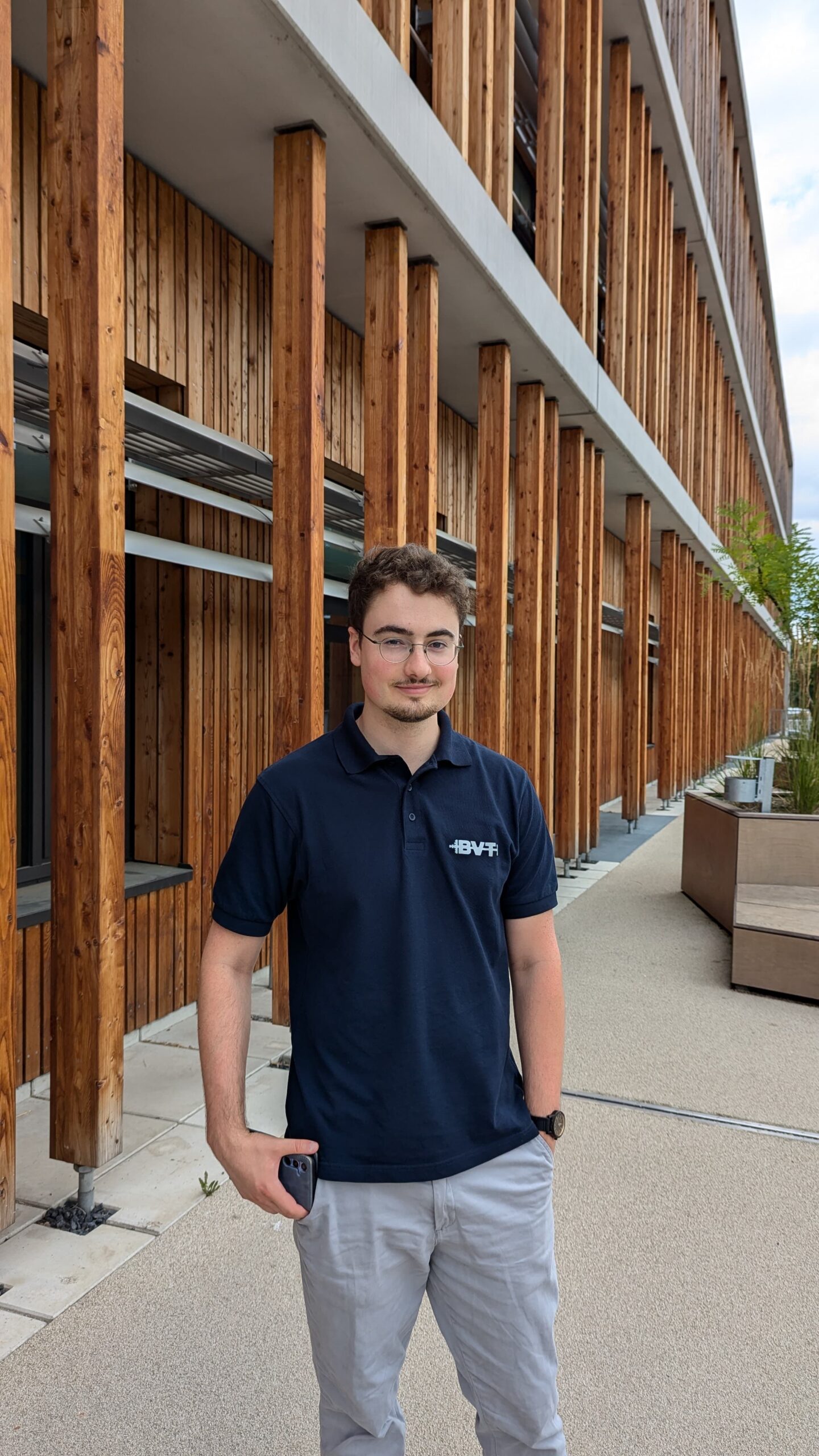Research Associate / PhD Student

Ulf Stegemeyer, M. Sc.
Research Associate / PhD Student
Tel.: +49 (0) 9421 187-449
Mail: ulf.stegemeyer@tum.de
TUM Campus Straubing
Uferstraße 53
94315 Straubing
Uferstraße 53, Room: 02.3505.112
Vita
Employment History
- Since 02/2024
- PhD Student & Research Associate, Professorship for Bioprocess Engineering, Technical University of Munich, Campus Straubing for Biotechnology and Sustainability
- 11/2023 – 01/2024
- Working Student, Professorship for Bioprocess Engineering, Technical University of Munich, Campus Straubing for Biotechnology and Sustainability
- 03/2023 – 05/2023
- Internship Student, Wacker Chemie AG
- 11/2020 – 03/2021
- Working Student, Support for the operation of a pilot plant for the production of Polyoxymethylenether, Technical University of Munich, Campus Straubing for Biotechnology and Sustainability
- 10/2020 – 02/2021
- Mentor, Leader of a group of students, Technical University of Munich, Campus Straubing for Biotechnology and Sustainability
- 10/2019 – 02/2020
- Tutor, Leading a maths tutorial, Technical University of Munich, Campus Straubing for Biotechnology and Sustainability
Education
- 8/2023 – 01/2024
- Master of Science in Industrial Biotechnology, Technical University of Munich
Thesis: “Establishment and Optimization of an Escherichia coli Fermentation Process” - 10/2018 – 10/2021
- Bachelor of Science in Chemical Biotechnology, Technical University of Munich, Campus Straubing for Biotechnology and Sustainability
- 02/2020 – 07/2020
- Semester abroad at the University of Queensland (Australia)
research project
C1TOCO – Biotechnological conversion of methanol (C1) to tocochromanols
The aim of this project is to convert methanol, which can be produced from CO2, into antioxidant substances in the form of a fermentative process. These are particularly important for the feed industry to stabilise feed with increased fat content. The aim of this research is to develop and optimise a methanol-based production process, which consists of fermentation with the microorganism Saccharomyces cerevisiae and the subsequent processing of the target substances. The project includes economic feasibility studies from the beginning to ensure economic viability.
